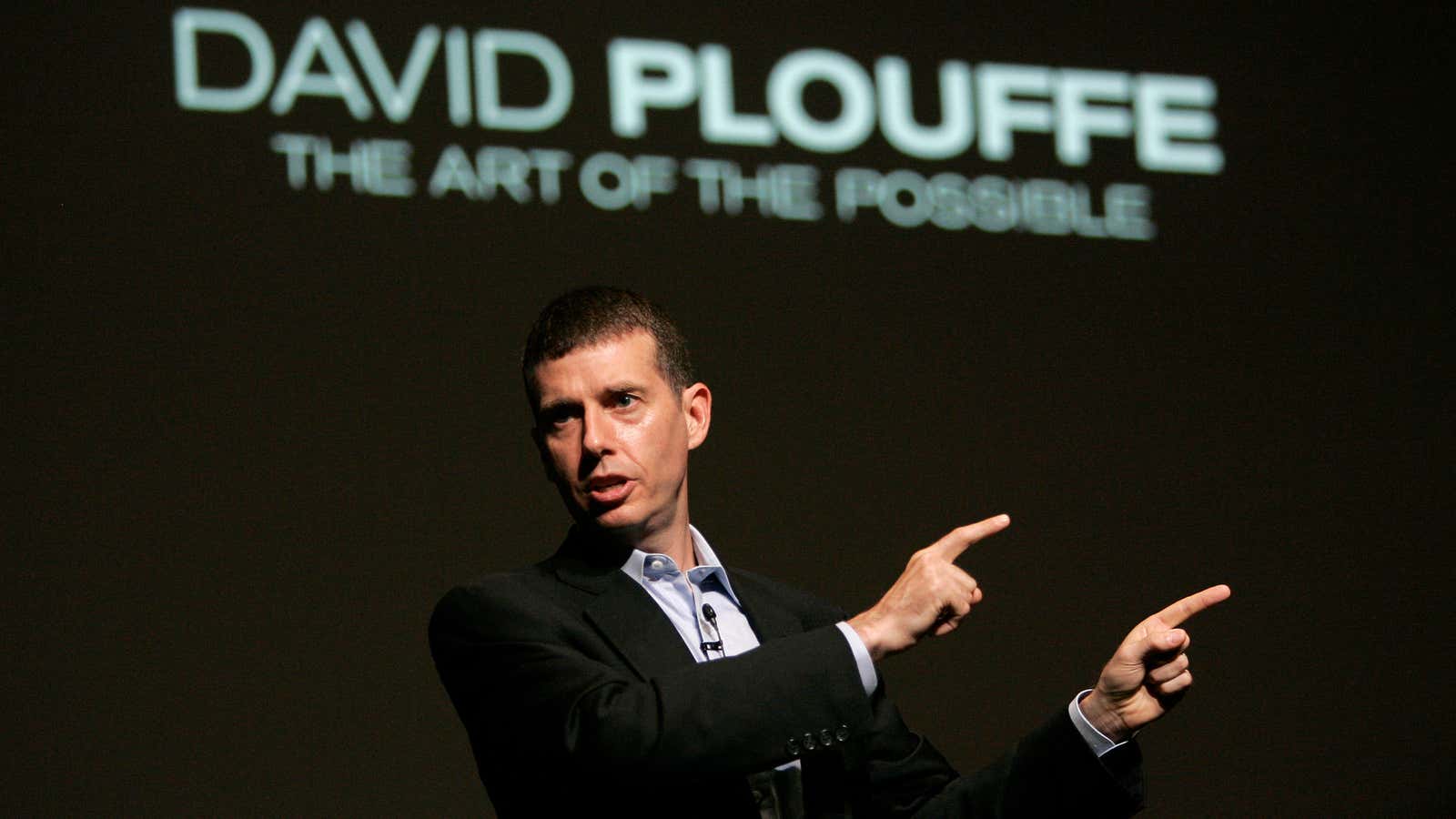Uber, the car service company, is a libertarian darling for its fight against municipal taxi regulations and the industry cartel that supports them. So here was plenty of surprise when its search for a top political advisor lead to David Plouffe, the liberal political operative who helped put Barack Obama in the White House.
Travis Kalanick, the company’s CEO, says that Uber is like a candidate, waging a political campaign against the taxi incumbents. Plouffe’s brightest moments came when leading an insurgent Obama campaign against establishment candidate Hillary Clinton in the 2007 Democratic presidential primary—so, the theory goes, he will be right at home at a start-up. Also, as an early proponent of big data in political campaigns, he will no doubt find many uses for Uber’s trove of consumer information.
Like Uber, which has been caught mass-ordering rides from competitors, Plouffe isn’t afraid to bend the rules from time to time.
But what can Plouffe really add to Uber’s political muscle? The company will probably continue to be outspent by the tax industry in political battles, even if a certain former New York City Mayor follows through on his threat to “fucking destroy” the industry.
The hiring of Plouffe may suggest a different tactic for the company, whose biggest challenge is to grow their market: What Plouffe knows best is turning outsiders into insiders—as Obama’s campaign and his own career show—and perhaps the company will now take a tack toward working more closely with the cities it is currently battling. A consumate organizer, Plouffe’s goal will be splitting taxi drivers and riders from the rentiers who benefit from artificial limits on the supply of cars.
Consider the recent program Uber rolled out for carpooling. It doesn’t sound too unlike the system of smart microbuses at heart of a 24-year old Finn’s masters thesis on digitally integrated urban transit in Helsinki that earned global media attention. Sonja Heikkilä, who works for the Helsinki’s planning commission, is part of an effort that aims to make private car ownership a thing of the past. That is Uber’s stated goal as well, and not enough people are asking who its users will share rides with when nobody owns cars any more. With local government’s already a famous provider of publicly shared transit services, it’s only natural that the prize in the campaign Uber is seeking to win may be the taxi industry’s privileged place as a provider of motorized transportation.
